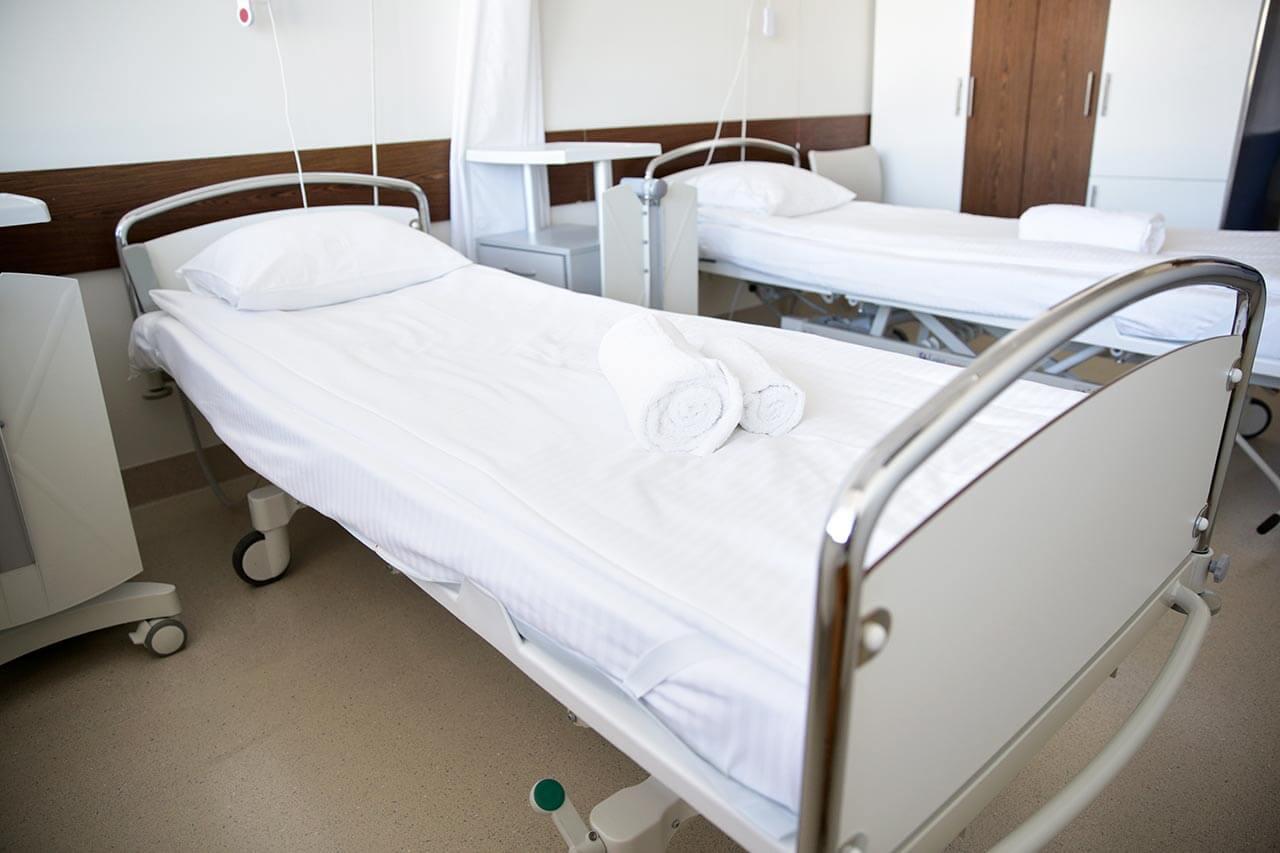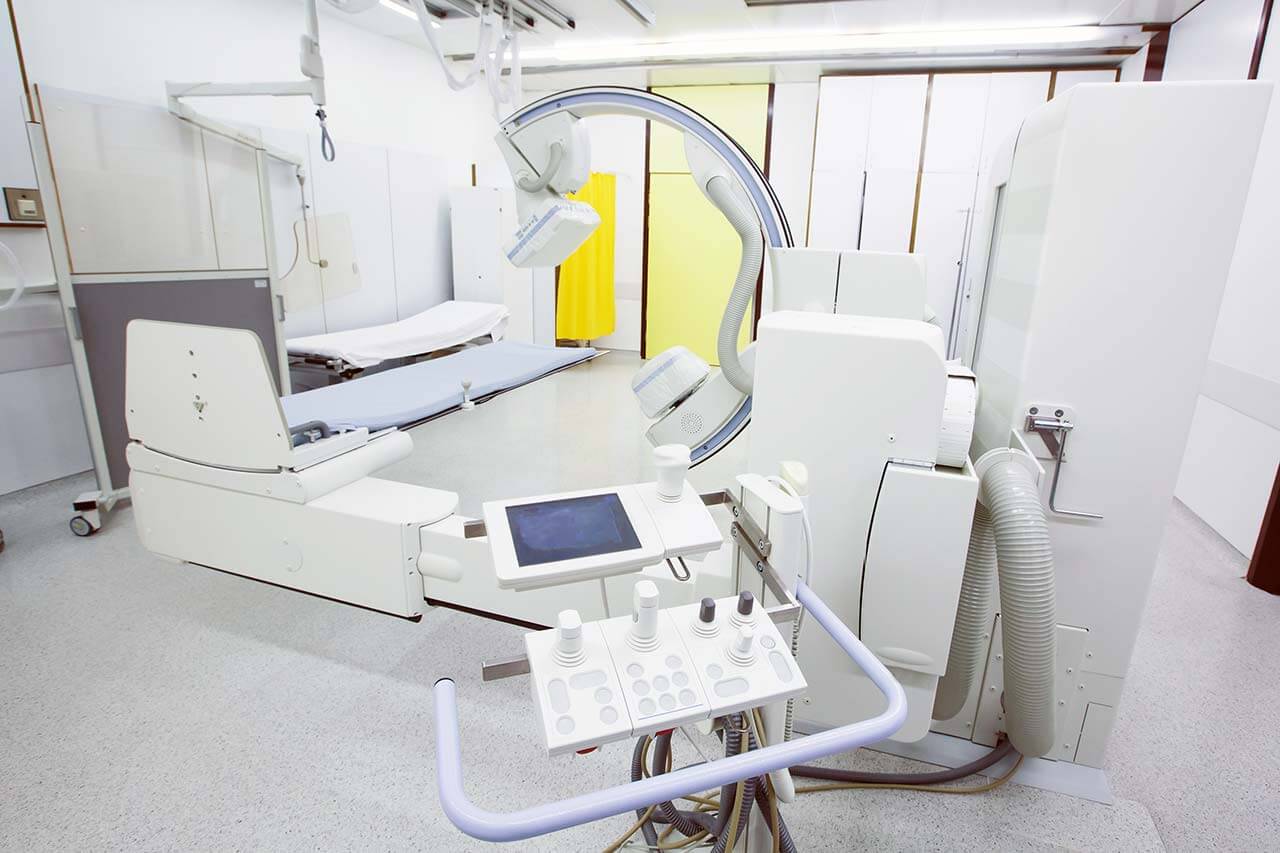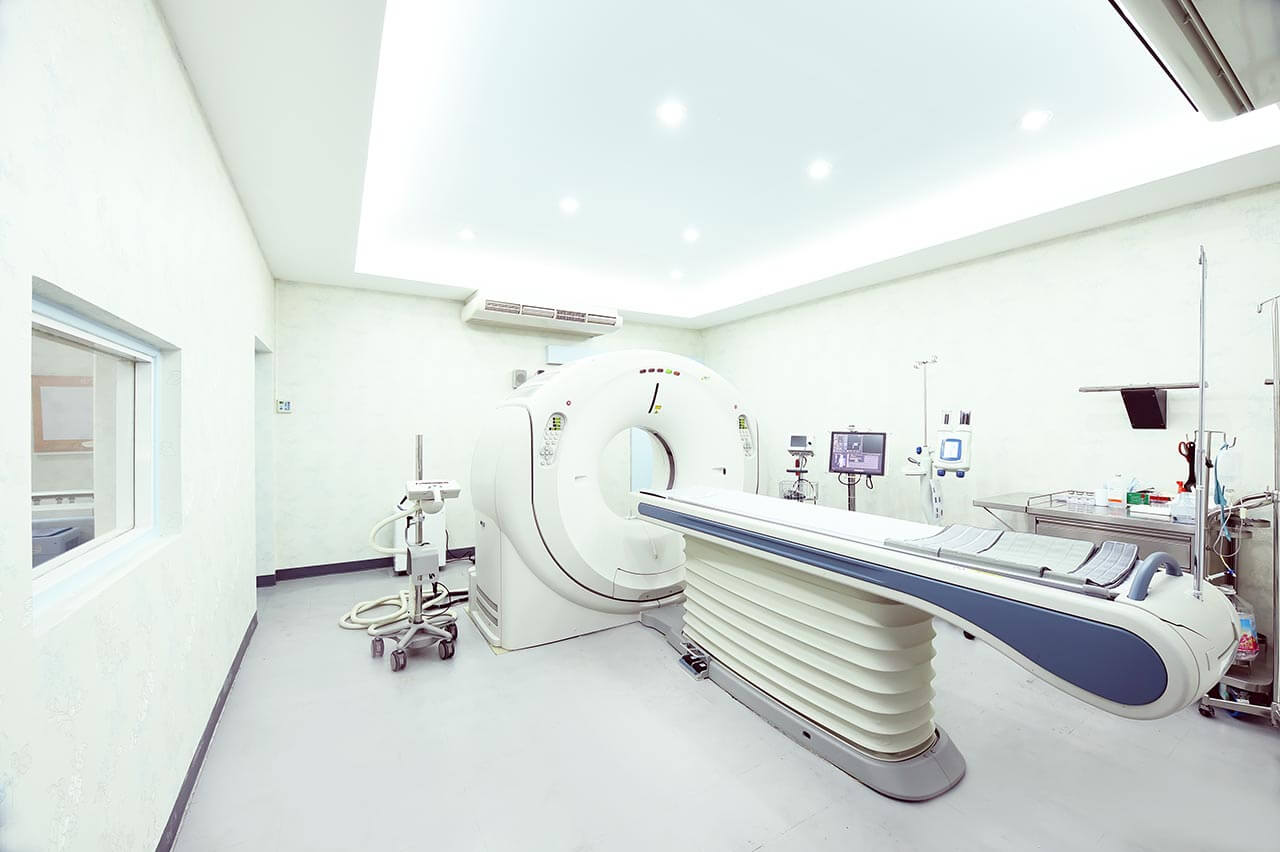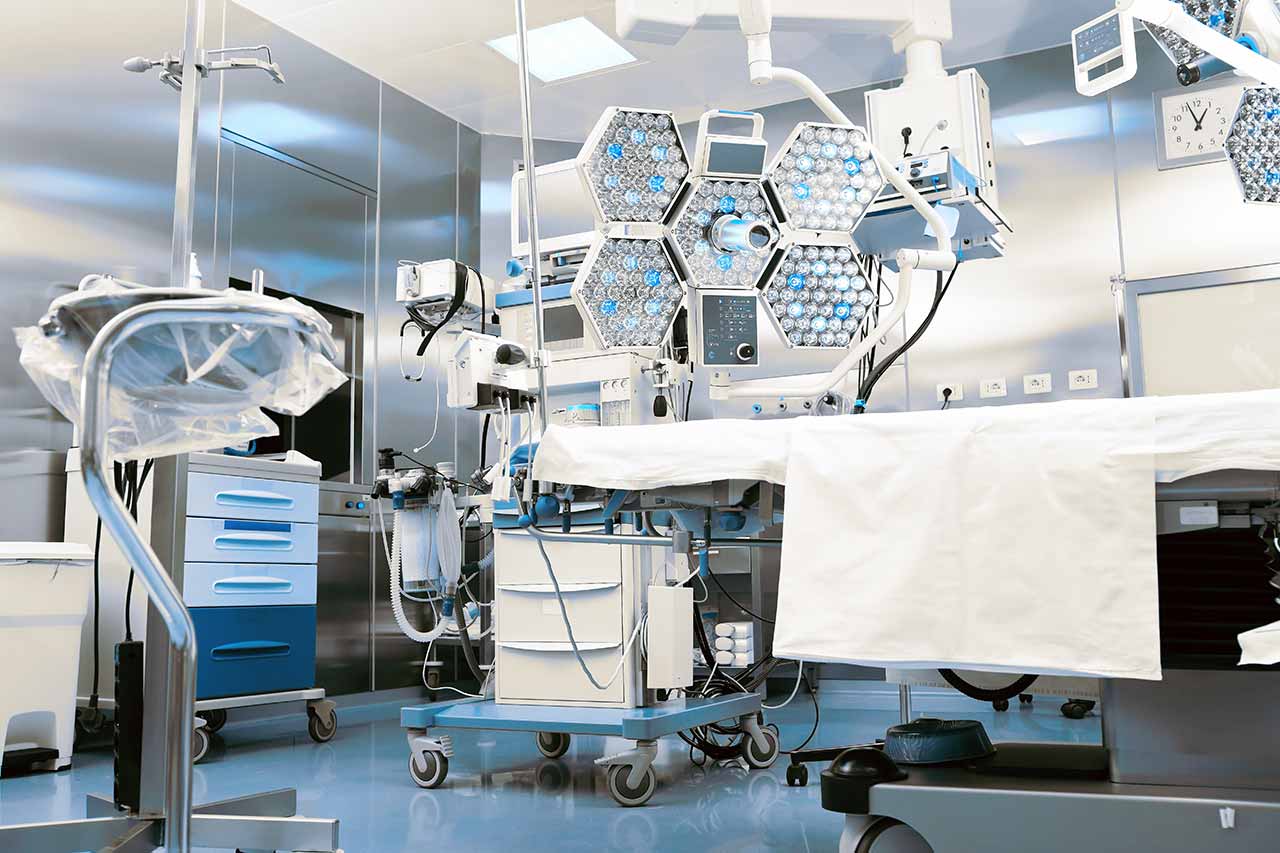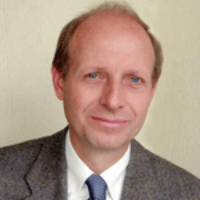
The program includes:
- Initial presentation in the clinic
- clinical history taking
- review of medical records
- physical examination
- laboratory tests:
- complete blood count:
- hemoglobin
- erythrocyte sedimentation rate (ESR)
- hematocrit
- thrombocyte
- uric acid
- LDH
- biochemical analysis of blood
- inflammation indicators (CRP, ESR)
- indicators blood coagulation
- complete blood count:
- abdominal ultrasound
- bone marrow biopsy (if indicated)
- phlebotomy
- nursing services
- full hospital accommodation
- explanation of individual treatment plan
Required documents
- Medical records
- Complete blood count (if available)
Service
You may also book:
 BookingHealth Price from:
BookingHealth Price from:
About the department
The Department of Hematology at the University Hospital Essen offers the full range of diagnostics and treatment of blood diseases. To provide first-class medical care, it uses the most modern methods, including high-dose therapy with autologous stem cell transplantation, immunotherapy approaches, specific methods for the treatment of tumor diseases and molecular types of therapy. The department’s active research activities provide patients with the access to innovations in the treatment of one or another hematological pathology. The department is headed by Prof. Dr. med. Ulrich Duehrsen.
As part of the West German Cancer Center Essen, the department covers all modern options for the treatment of hematopoietic cancer. The doctors of all related specialties are in the immediate vicinity, which allows to carry out the comprehensive diagnostics, therapy, as well as the regular interdisciplinary consultations, ensuring the selection of the optimal treatment strategy. The main therapeutic options for cancer treatment include the surgical measures, radiation therapy, chemotherapy, hormonal or cytokine therapy, immunotherapy, targeted therapy, as well as the symptomatic therapy for the elimination of pain, treatment of nausea and vomiting, and proper nutrition.
The department provides both inpatient and outpatient treatment. It provides medical care to more than 16,000 patients every year. It is the most striking proof of the outstanding quality of services and high authority in the area of specialization.
The department specializes in the diagnostics and treatment of the following hematopoietic diseases:
- Acute and chronic leukemias
- Myelodysplasias
- Myelodysplastic syndrome
- Myeloproliferative diseases
- Lymphomas
- Indolent non-Hodgkin lymphomas
- Aggressive non-Hodgkin lymphomas
- Hodgkin's lymphoma
- Multiple myeloma
- Anemia
- Red blood cell disorders
- Hemolysis
- Thalassemia
- Blood clotting disorders
- Hemorrhagic tendency
- Thrombosis (hypercoagulability)
- Other diseases
Curriculum vitae
- 1974 - 1981 Medical studies at the Universities of Hamburg, Germany, and Montpellier, France.
- 1981 Doctorate in Experimental Pharmacology.
- 1982 - 1986 Training in Internal Medicine at the Johanniter Hospital Geesthacht and the University Hospital Essen, Germany.
- 1986 - 1989 Training in Cell Biology at the Walter and Eliza Hall Institute of Medical Research in Melbourne, Australia.
- 1989 - 1992 Training in Hematology and Medical Oncology at the University Hospital Hamburg.
- 1992 Habilitation in Experimental Hematology.
- 1992 - 1998 Research Fellow in Hematology and Internal Oncology at the University Hospital Hamburg.
- Since 1998 Director of the Department of Hematology at the University Hospital Essen.
Fields of Interests
- Clinical and experimental studies in leukemias, lymphomas, multiple myeloma and bone marrow failure syndromes.
Clinical Research
- Therapy optimisation and phase I, II and III studies in patients with leukaemias, myelodysplastic and myeloproliferative diseases, lymphomas, myelomas, anaemias and coagulation disorders.
- Development and evaluation of molecular prognostic markers in leukaemias and lymphomas.
- Stem cell therapy in haematopoietic and non-haematopoietic diseases.
Experimental Research
- Structure and function of the hematopoietic microenvironment in healthy and diseased bone marrow.
- Telomeres and telomerase in healthy and diseased haematopoietic cells.
- Gene expression and aberrant gene utilisation in leukaemias and lymphomas.
- Murine models of leukaemogenesis.
- Murine models of hematopoietic stem cell control.
Photo of the doctor: (c) Universitätsklinikum Essen
About hospital
According to the authoritative Focus magazine the University Hospital Essen ranks among the top German hospitals!
With 27 specialized departments and 24 institutes, the hospital in Germany is a maximum care medical facility. The hospital has 1,300 beds for inpatient treatment. A highly qualified medical team of more than 6,000 employees takes care of the health of patients. All the specialists give preference to an interdisciplinary medical care, which guarantees a comprehensive treatment taking into account the smallest aspects of a particular pathology. The hospital annually diagnoses and treats more than 50,000 inpatients and about 195,000 outpatients, which testifies to the prestige of the medical institution and the highest quality of treatment in Germany.
The hospital presents all the modern medical fields. Nevertheless, special attention should be given to the following major fields of specialization as oncology, transplantology and cardiology, as well as research activities in the field of immunology, infectology and translational examinations of pathologies of the nervous system and behavioral disorders.
Established on the basis of the standard American model of Comprehensive Cancer Centers, the West German Cancer Center (WTZ) in Essen was recognized as the best medical facility of this kind in Germany in 2009. Nowadays, the center holds leading positions both on the national and international medical markets. The basis of its successful clinical practice is the use of very latest treatment methods and an interdisciplinary approach to each clinical case. The West German Organ Transplant Centre (WZO) is also recognized as one of the best in the country and one of the few in Germany, which specializes in the transplantation of all vital organs, such as kidney, liver, pancreas, heart and lungs. Special attention is paid to kidney and liver transplantation.
The hospital in Germany is proud of its high-tech medical equipment, experienced and competent staff, productive research activities, which allow to guarantee the accurate diagnostics and effective treatment, including rare and very complex clinical cases for every patient. Consequently, the hospital is considered a perfect embodiment of high-quality treatment in Germany.
Photo: (c) depositphotos
Accommodation in hospital
Patients rooms
The patients of the University Hospital Essen live in comfortable rooms designed in bright colors. The standard room furnishing includes an automatically adjustable bed, a bedside table, a personal wardrobe, a personal call button with a built-in light panel, a telephone, a TV and a radio. The Internet access is available at an additional cost.
Meals and Menus
The patients of the hospital are offered a daily choice of three menus. The patients are also offered alternative types of menus, if their religion requires the exclusion of certain foods. If you follow a certain diet or suffer from food intolerance, you will be provided with a menu of your choice by discussing it with your attending physician in advance. The hospital also houses a bistro and a cafe, where one can have a tasty snack, enjoy hot and cold drinks.
Further details
Standard rooms include:
Accompanying person
There are a few types of hotels for the accompanying persons, who want to stay near the hospital. The hotel of the Essen University Hospital offers apartments on the first floor of the nursing high-rise building. The DRK nursing also offers single and double rooms.
The hotel in Grugapark is available for the parents, whose children stay in the hospital. The parents of children with cancer can also stay here. Moreover, The Department of Pediatrics offers its rooms for parents.
